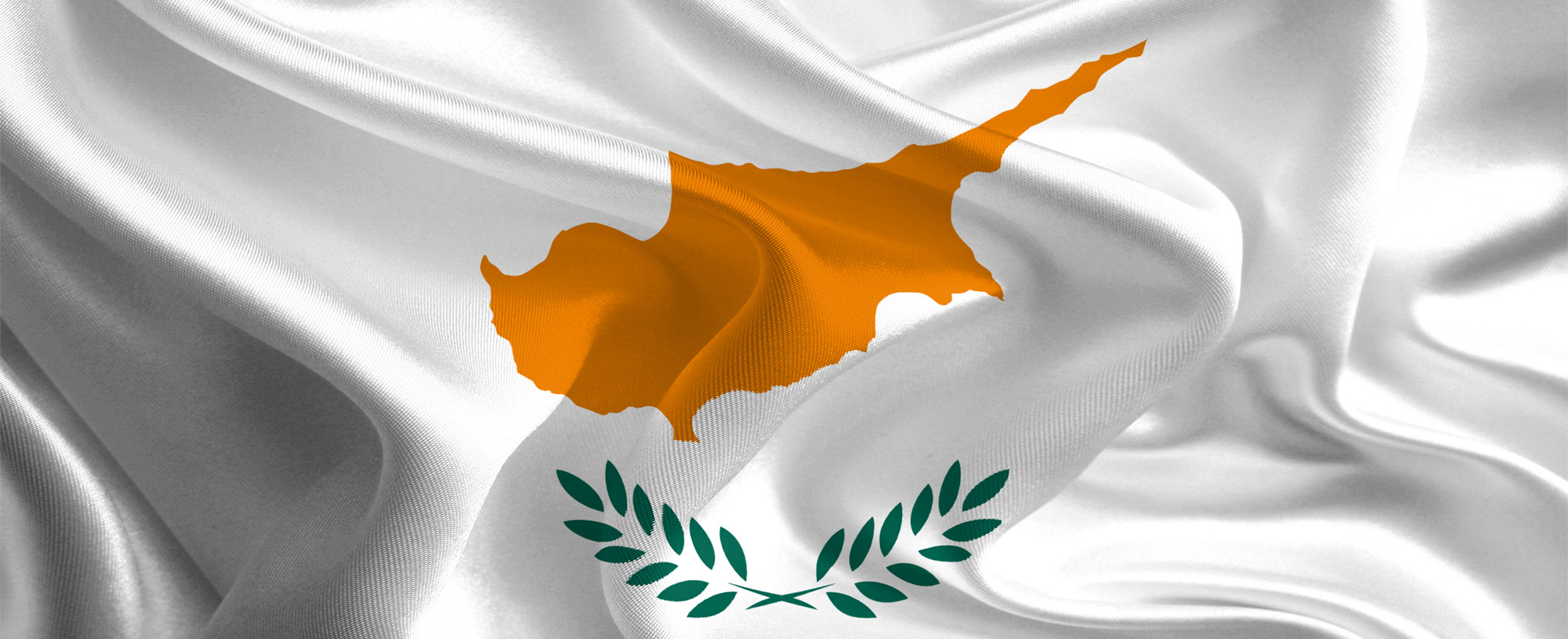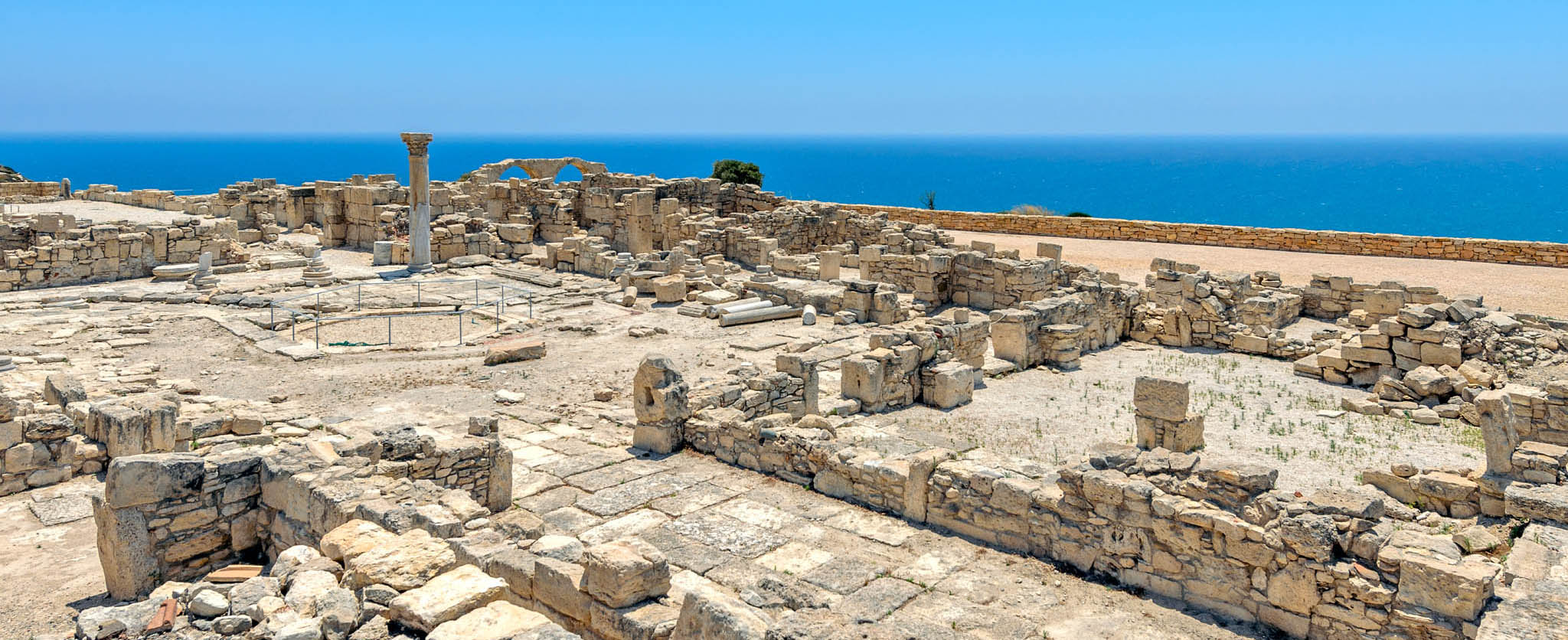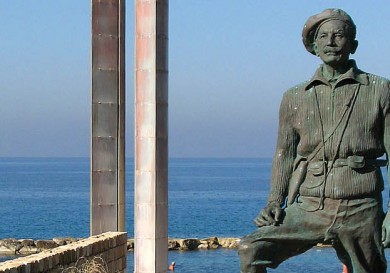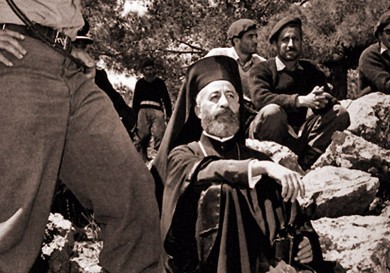The era of optimism and high hopes
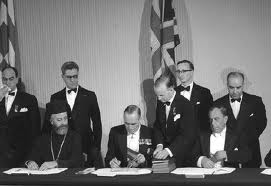 After signing the agreement of Cyprus’ independence 54 years ago, exactly at midnight, on August 16th, 1960 a new state appeared on the political map of the world. The last Colony Governor Sir Hugh Mackintosh Foot handed the political power to the leaders of the two communities. The presidential republic was headed by Archbishop Makarios and Vice-President Dr. Fazil Kucuk.
After signing the agreement of Cyprus’ independence 54 years ago, exactly at midnight, on August 16th, 1960 a new state appeared on the political map of the world. The last Colony Governor Sir Hugh Mackintosh Foot handed the political power to the leaders of the two communities. The presidential republic was headed by Archbishop Makarios and Vice-President Dr. Fazil Kucuk.
For any country, gaining political independence is the beginning of a period of optimism and high hopes. Cyprus was no exception: on the same day in August a new constitution was approved, and a month later the republic became a member of the United Nations, taking an active part in the creation of the Non-Aligned Movement, and established diplomatic relations with the USSR.
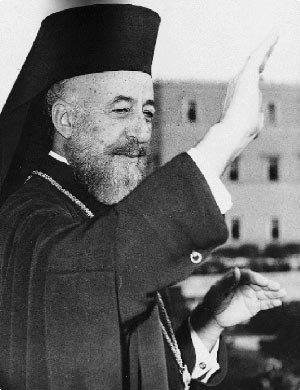 The first foreign policy moves of the new government caused some concerns in the US and the UK, as the ideological climate of the planet was in a state of severe stress. One American conservative even called Makarios the “Mediterranean Fidel Castro.” However, a year later, as if to emphasize the right to multi-vector policy, Cyprus joined the Commonwealth, led by Britain. At the same time they improved relations with Washington. Now, for the Atlantic Policy “Black Poppy” ( the Archbishop was so-called in London because of his modest black clothes corresponding to his spiritual rank) was an ally again.
The first foreign policy moves of the new government caused some concerns in the US and the UK, as the ideological climate of the planet was in a state of severe stress. One American conservative even called Makarios the “Mediterranean Fidel Castro.” However, a year later, as if to emphasize the right to multi-vector policy, Cyprus joined the Commonwealth, led by Britain. At the same time they improved relations with Washington. Now, for the Atlantic Policy “Black Poppy” ( the Archbishop was so-called in London because of his modest black clothes corresponding to his spiritual rank) was an ally again.
Wide opportunities for maneuver in the field of international relations were opening to this young nation. There was the prospect to lead an independent line, strengthen internal unity, all which were met with great difficulty.
However, the legal world, made as a result of a complex series of four-party talks (the United Kingdom – Turkey – Greece – Cyprus), which began in 1954 and ended in five years with the Zurich-London agreements, proved fragile. A series of constitutional crises and several deadlocks in the administrative and financial management became the “reason” for the adoption of the UN resolution, which provided input to the island of combined peacekeeping forces.
At that time, unfortunately, these measures were necessary. By the end of 1963 this bi-national state actually collapsed and was on the verge of social anarchy. The era of optimism lasted a little over than three years.
Big context
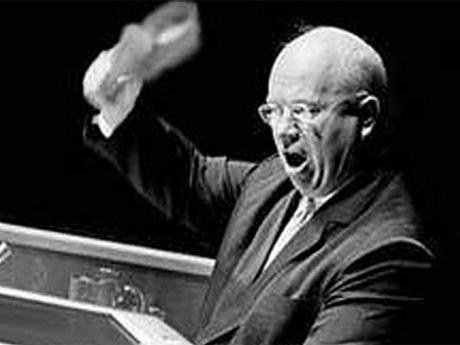 Different opinions on the causes and consequences of what happened exist. The paradox lies in the fact that each of the views is true, but only to a certain point of view. To go beyond the political views of stakeholders ensuing conflict, you need to look at the problem in historical and temporal context.
Different opinions on the causes and consequences of what happened exist. The paradox lies in the fact that each of the views is true, but only to a certain point of view. To go beyond the political views of stakeholders ensuing conflict, you need to look at the problem in historical and temporal context.
In the world of politics, the 1960s are characterized by increasing global conflicts. The confrontation between Moscow and Washington had already taken shape in the “cold war.” The two leading forces and their supporters fighting moved from the center to the periphery of the international system. An active surge of anti-colonial movement had significantly strengthened the position of the Soviet Union, which strongly encouraged imperialist fetters.” However, the socialist ideology was only a pretext for a global competition for political supremacy. In the circumstances at the time the legal way was to change the composition of the United Nations, which were active just to release the former colony. In December 1960, after Moscow’s and the friendly regimes ‘ initiative, the “Declaration on the Granting of Independence to Colonial Countries” was approved.
Now, the very existence of the colonies came to be regarded as a “geopolitical immorality” and a relic of the past.
The strategy of the Soviet Union was justified: the anti-colonial trend significantly changed the political balance of power in the United Nations. Washington and its allies lost their numerical superiority. The quantitative superiority in developing countries (which included Cyprus) was fixed to develop.
It is obvious that the United Nations played an important role in the independence of Cyprus. In 1954, for the first time, Greece was able to present the Cyprus issue to the General Assembly. Athens insisted on the self-determination of the island. In turn, the United Kingdom and Turkey argued that the debate was an internal matter of the London administration. But, as emphasized in Soviet historiography, ” the world’s public opinion fully supports the heroic struggle of the Cypriots. The reasons for and purpose of such a strategy, we have just dealt with. Now open the map of the British Foreign Ministry.”
Zero-sum game
 London departed from the principle of “an internal issue” on Cyprus very soon, and Harold Macmillan (then minister of foreign affairs, he will become the prime minister in 1957) initiated a series of bilateral talks with Greece with a clearly “zero-sum” on the Cyprus issue. The selection of Macmillan was almost non-existent: the colonial system collapsed in the once-powerful paws “of the British lion.” Every month the Cyprus issue was gaining international attention. London simply had to do something.
London departed from the principle of “an internal issue” on Cyprus very soon, and Harold Macmillan (then minister of foreign affairs, he will become the prime minister in 1957) initiated a series of bilateral talks with Greece with a clearly “zero-sum” on the Cyprus issue. The selection of Macmillan was almost non-existent: the colonial system collapsed in the once-powerful paws “of the British lion.” Every month the Cyprus issue was gaining international attention. London simply had to do something.
From this, a combination of a diplomatic “London as a referee” was born. Suddenly, after breaking verbal agreements with Greece, the UK attracts a dialogue Turkey. The goal was to put Ankara and Athens in negotiating the opposition, and then to act as an arbitrator whose decisions in any case, would retain its former status and ensure the integrity of Cyprus’ naval outpost in the Mediterranean. The Turkish elite enthusiastically joined the proposed diplomatic maneuvers. The country had intensified the already well warmed up nationalist sentiment under the slogan “Cyprus is Turkish!” In Greece, a wave of riots had begun.
Meanwhile, EOKA acted in Cyprus (“Union of fighters for the liberation of Cyprus”), adapting guerrilla methods in which the victory of the nationalist right majority was obtained, which began to force the political events. In August in 1955, the UK convened a tripartite conference (London, Ankara, Athens) to discuss the situation in Cyprus, the results of which had not led to the expected decision.
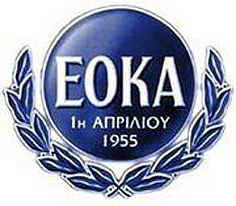 This was followed by the tragic events that ended in March 1956; a temporary exile of Archbishop Makarios from the island. The next three years were very difficult for Cyprus: strikes and protest movements actually led the country to financial and political paralysis.
This was followed by the tragic events that ended in March 1956; a temporary exile of Archbishop Makarios from the island. The next three years were very difficult for Cyprus: strikes and protest movements actually led the country to financial and political paralysis.
In June 1958, the United Kingdom, aware that the solution must be sought, “here and now”, proposed a new partnership plan providing for a certain autonomy of Greek and Turkish Cypriot communities. Despite the initial rejection of the plan of the Greek Cypriot side, it was a significant step: in the cautious and sly British diplomatic lexicon the word “independence” appeared. A year later, it became a reality. But as a result of agreements signed in Zurich and London, British diplomacy still received importance: its strategic interests were provided not only with a number of communications and regional preferences, but the two naval bases of Akrotiri and Dhekelia, which have preserved their exotic status (overseas territory of the UK under the control of Her Majesty’s) so far.
Assess and do not repeat
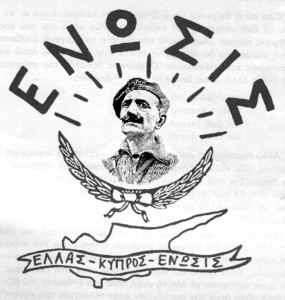 The value of the Zurich-London Agreements in 1959 is far from straightforward and it ranged from “the only option of independence” to “forced surrender under tremendous pressure” and “betrayal of the enosis cause” (“enosis” – the movement for the reunification of the Greek-Cypriot people with their historical homeland) .
The value of the Zurich-London Agreements in 1959 is far from straightforward and it ranged from “the only option of independence” to “forced surrender under tremendous pressure” and “betrayal of the enosis cause” (“enosis” – the movement for the reunification of the Greek-Cypriot people with their historical homeland) .
One thing is certain: it is necessary to distinguish the illusory nature of the contract, its tragic consequences and chief legal result. For Cyprus’ independence was a landmark event. Even after the separation of the Greek islands it became a full-fledged independent state, member of the EU, an important regional center. Such political and financial career for an underdeveloped agrarian colony is unique. The only exception is a tiny and historically apolitical Malta.
On the other hand, the Zurich-London agreements entered diplomacy into textbooks as unnatural and potentially explosive political moves which provoked a series of crises in the young state. And the infamous “Treaty of Guarantee” in the framework of these agreements largely became an ideological cover for the Turkish invasion in July 1974. Hardly could have Britain foreseen this, in the crumbling colonial heritage. However, political scientists and lawyers can easily find points of agreement in the opposition parties increasing attempts for their union. I want to believe that the practice of “agreements” will remain forever in the pages of history books.
The independence of Cyprus celebrates its 53 years
On August 16th, 2013, 53 years from the day when Cyprus, a member of the British colonial possessions gained independence, was marked. However, the Republic celebrates the official Independence Day today, October 1st.
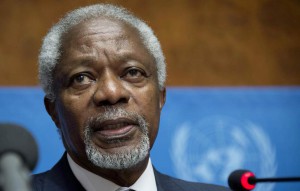 The results of the past 53 years are not as rosy as the residents of Cyprus would like: the island remains divided along ethnic lines, and the prospects for combining are uncertain.
The results of the past 53 years are not as rosy as the residents of Cyprus would like: the island remains divided along ethnic lines, and the prospects for combining are uncertain.
Many times in past years, we observers thought that the solution of the Cyprus problem was closely reaching an end. In 2004, the UN Secretary General Kofi Annan prepared an agreement for two separate referendum communities on the island concerning the developed unification plan of the island. The plan formally corresponded to the principles of the United Nations, but, according to many Greek Cypriots contained too many concessions to the de facto division of the established island. Thus, the refugees from the north of Cyprus would not receive the right to return to their homes.
The referendum results proved predictable: the Turkish Cypriots supported the plan, which would allow them to become full citizens of the EU; the Greek Cypriots rejected the proposal of Kofi Annan. The Cyprus problem remained unresolved once again.
New hope began to dawn in the autumn of 2008: after the departure of the former leaders, the new community leaders resumed negotiations. These negotiations were conducted on the principle of “all or nothing”: as long as no agreement will be prepared, which can be put into a referendum, the parties do not comment on the course of the debate, and do not announce any agreements.
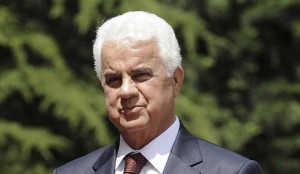 In the spring of 2010, replacing the moderate Mehmet Ali Talat at the head of the unrecognized “Turkish Republic of so-called Northern Cyprus” came Dervis Eroglu – a longtime supporter of the division of the island.
In the spring of 2010, replacing the moderate Mehmet Ali Talat at the head of the unrecognized “Turkish Republic of so-called Northern Cyprus” came Dervis Eroglu – a longtime supporter of the division of the island.
Leaked to the press, Eroglu’s new proposals included the actual creation of two independent states. This is what is going to be negotiated between Eroglu and the Cypriot President Anastasiadis. The new head of Cyprus seems to be resolute: “The existing division of the island is unacceptable,” – said recently the head of state.
Negotiations are ongoing, and with them 39 years of forced division of the island, did not break the will of the Greek Cypriot side though – the heirs of the fighters for independence.




